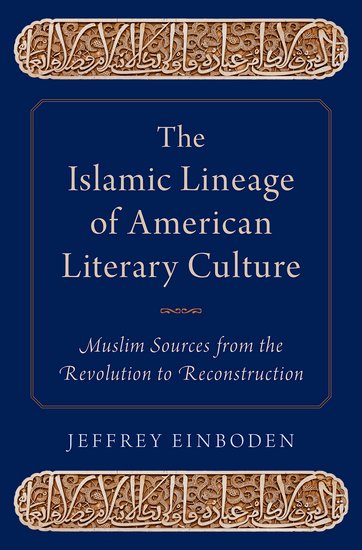
The Islamic Lineage of American Literary Culture: Muslim Sources from the Revolution to Reconstruction
Alia Yunis
Jeffrey Einboden
2016, Oxford UP, 978-0-19939-780-8, $78 hb.
Before there was even a United States, religious scholars in North America were pursuing the study of Islam and Arabic to interpret religious scriptures. Einboden, an English professor at North Illinois University, takes us from the mid-1700s to the mid-1800s, exploring the key American literary figures whose work was partly grounded in an interest in the Muslim world. He starts with 18th-century minister and avid Arabic and Hebrew reader Ezra Stiles and includes America’s first “bestselling author,” Washington Irving, who ventured into the Islamic world more than any other American figure of this period, basing himself in Andalusia for some time and writing Tales of the Alhambra (1832). Einboden’s surprise entry is Lydia Maria Child, who wrote The Frugal Housewife and An Appeal in Favor of that Class of Americans Called Africans (1833), an abolitionist text which spoke of Jo Ben Solomon, a Gambian Muslim slave sold in America.
.png?cx=0.44&cy=0.65&cw=382&ch=487.6595744680851)